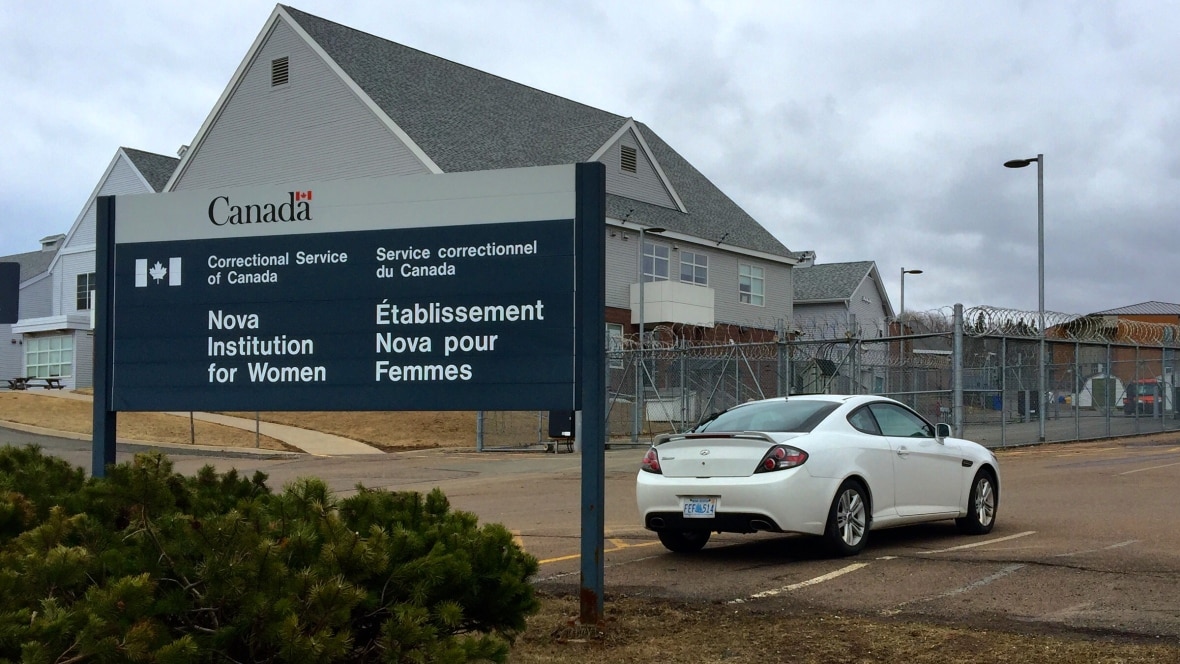KJIPUKTUK (Halifax) – Correctional Service Canada has yet to publicly respond to a Chronicle Herald article in which a staff person at the federal Nova Institution for Women expresses transphobic views.
On September 18 the Chronicle Herald ran an article in which an unnamed staff person at the institution expressed concern about the recent transfer of a transgender woman to the facility. The staffer repeatedly referred to the woman as male, said she “looked like a man”, and told the paper that “a female guard could be told to strip-search a male” and it could “open the floodgates for male inmates to women’s prisons and vice-versa.”

The article, which did not feature a byline, prompted advocates and community members to take their disgust to social media as well as an opinion piece in the same paper by UNB assistant professor and author Lucas Crawford “Transgender inmates are targets, not threats”.
The Chronicle Herald story ran following the transfer of what seems to be the first trans woman who has not had gender confirming surgery to the facility. A recent shift at the federal level means that Correctional Service Canada (CSC) is assessing each request for a transfer by a Transgender inmate on a case-by-case basis, a divergence from the policy of assigning people to an institution based on their genitals.
Real worry for woman in question
Emma Halpern, speaking on behalf of the Elizabeth Fry societies of Cape Breton and Mainland Nova Scotia, was in Nova Institution the day the article came out. Halpern knows and works closely with the woman the article was about and hoped she wouldn’t see it. She knew it would cause harm.
“She did,” says Halpern. “It hasn’t been easy.”
Martha Paynter with Women’s Wellness within – a group serving criminalized women – says that her first reaction to the article was disappointment that the paper would bother printing it.
Paynter felt “real worry for the woman in question and the stigma, isolation, trauma, and violence that she must be experiencing during her imprisonment”. She also expressed “a bit of fatigue and impatience that we’re still having very basic conversations having to repeat very basic refrains such as ‘trans women are women’.”
The CSC policy still on the books but no longer adhered to states that “pre-operative” transgender women will be housed in men’s institutions and “pre-operative” transgender men will be held in women’s institutions.
Question from Trans advocate triggers policy update
The policy was reaffirmed on January 9, 2017. That same week when Transgender advocate Teresa Windsor questioned Prime Minister Trudeau about the policy at a Kingston, Ontario town hall he committed to ensuring that Trans women are housed in a “prison more appropriate to their gender identity”. Trudeau admitted that it was an issue he had never thought of.
CSC credits the change in practice and the policy review to recent changes to the Canadian Human Rights Act, which added gender identity and expression to the list of prohibited grounds of discrimination.
As such, “we are updating our policies to reflect our duty to accommodate an offender’s and/or staff member’s needs based on their gender identity or expression, regardless of their physical anatomy or the sex or gender noted on their identification documents,” CSC Senior Communications Advisor Stephanie Stevenson wrote in an email.
The changes also come in the wake of a human rights complaint filed by Jennifer Metcalfe, a lawyer with the West Coast Prison Justice Society, and calls by then Correctional Investigator of Canada Howard Sapers to place transgender people based on their gender identity.
Nova Scotia introduced a similar change earlier this year. In provincial institutions “self-identification is the sole measure of an offender’s gender identity” according to the Nova Scotia’s Department of Justice Trans and Gender Variant Offenders policy issued January 2017. The policy goes on to state that “unit placement on the sole basis of genitalia is not appropriate”.
Nova Institution staff received training
A spokesperson for Correctional Service Canada would not comment on the article directly during a phone interview.
“What’s really important to us is ensuring that we provide the staff the necessary tools and training as our policies evolve,” says Luc Bisson, Director of Strategic Policy at Correctional Service Canada. “This is a particular file where we’ve made information available and will continue doing that.”
Bisson added that some institutions have reached out to local groups to provide additional training, as Nova Institution did with the Youth Project, a provincial non-profit that serves LGBTQIA2S+ youth.
The Youth Project’s Executive Director, Kate Shewan, confirmed that they provided training to staff at Nova Institution both this year and in past years. According to Shewan the sessions “included fairly comprehensive coverage of issues related to gender identity.”
Even the now outdated January 9 policy states that the head of each institution will make sure that staff that have “regular contact with offenders with gender dysphoria have the necessary knowledge to effectively respond to their needs.” Though because the staff person who spoke to the Herald was unnamed, there is no way to tell if they have contact with the transgender woman in question.
“I was very disappointed in the Chronicle Herald reporting, which centred, and appeared to validate, the concerns of an employee with transphobic beliefs, rather than challenging these viewpoints and highlighting that what the employee is actually advocating for is the denial or removal of legislated human rights protections for incarcerated trans women,” says Shewan.
She notes that though they can’t know if the employee attended the Youth Project training the views expressed “were contrary to the message delivered in the training.”
“From my perspective the fact that Corrections Canada is placing people in the appropriate spaces is a huge step forward, and the comments from the warden suggested a good level of knowledge and awareness of their responsibilities around incarcerated trans people,” says Shewan.
“The right thing is for her to be in the community”
Both the Elizabeth Fry Society and WWW are in favour of decarceration.
“No matter how much training, how good the policies, no matter what we do this is the reality of our prisons,” says Halpern.
The trans woman in question shouldn’t be incarcerated at all, says Halpern.
“The right thing is for her to be in the community, and be supported, and have the health care and social supports, and our community to be there for her, and not to be dealing with this behind the walls of the prison,” says Halpern.
Policies under review
The federal Gender Dysphoria policy is currently under review, and CSC launched what Bisson calls an “extensive consultation” this past May.
That consultation included 46 groups in all, ranging from the Salvation Army and the Canadian Association of Chiefs of Police to Egale Canada, Rainbow Health Ontario, the Association of Elizabeth Fry Societies, the John Howard Society of Canada and West Coast Prison Justice Society.
An email from Stevenson said that the consultations also included inmates. CSC is currently analysing the feedback.
Union responds
“To be frank it’s kind of brand new for everybody,” says Jeff Wilkins, Regional President of the Atlantic for the Union of Canadian Correctional Officers. “It’s going to be a learning process all the way along, but when it comes to the training obviously we can give our executives training, and we can serve as leaders within our institutions, but the training piece as the policies are identified and changed that would be from my perspective the employer’s responsibility to train us.” Wilkins adds that staff are trained in many areas, including mental health.
The union’s regional executive has not yet held any training sessions on gender identity and expression, or the rights and needs of incarcerated transgender people.
Wilkins notes that he hasn’t gotten any feedback from staff at Nova Institution relating to the transfer of transgender inmates.
“When it comes to those types of individuals, people need to be sensitive and understanding to those issues,” says Wilkins.
Wilkins also did not comment on the Chronicle Herald article.
Herald article harmful
Halpern calls the article “very flippant with absolutely no regard for the person that they were talking about” and would like some recognition that it caused harm and should be taken seriously. She also questions the idea espoused by the unnamed staff person that women look any certain way.
In an interview with Sheldon McLeod two days after the article was published, Paynter voiced concern with the staff person’s comments on strip searching Trans people in prison.
“Strip searching is not a right to be protected,” Paynter said on 95.7. The normalization of strip searching is a big issue, says Paynter who is concerned about the vulnerability and violation of incarcerated women.
Halpern says that incidents such as the Herald article can foster or heighten feelings of distrust, and lack of safety in an environment that can feel inherently unsafe. She notes that many women within Nova have made clear that the article does not represent their views.
“Prisons are not known as places where everyone’s human rights are automatically respected,” says Halpern. “I do believe there are many people within management who are doing their best and who are educating themselves and working towards improvement but the reality is that it is prison.”
If you can, please support the Nova Scotia Advocate so that it can continue to cover issues such as poverty, racism, exclusion, workers’ rights and the environment in Nova Scotia. A pay wall is not an option, since it would exclude many readers who don’t have any disposable income at all. We rely entirely on one-time donations and a tiny but mighty group of dedicated monthly sustainers.



